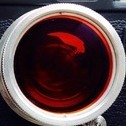How Can Analog Photography Be Saved?
-
Recently Browsing 0 members
- No registered users viewing this page.
-
Similar Content
-
Analog memories. 1 2
By DC-S5,
- 22 replies
- 1,750 views
-
- 0 replies
- 376 views
-
- 9 replies
- 483 views
-
- 1 reply
- 222 views
-
- 126 replies
- 11,940 views
-






Recommended Posts
Join the conversation
You can post now and register later. If you have an account, sign in now to post with your account.
Note: Your post will require moderator approval before it will be visible.